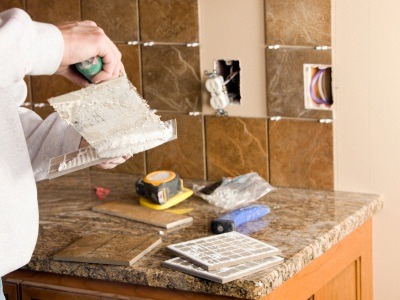How Much Are Home Equity Loan Closing Costs?

Home equity loans can be an appealing way to turn your existing home value into cash that you can use to accomplish your financial, homeownership and lifestyle goals, particularly if you don’t want to refinance your primary mortgage. But determining whether any loan makes sense is always an arithmetic problem. To solve, you need to make sure you know what all the inputs are.
Today, we’ll discuss the ins and outs of one of those inputs: home equity loan closing costs. Let’s start by looking at the scope of what we’re dealing with.
Do Home Equity Loans Have Closing Costs?
Closing costs are fees paid when you sign for your loan that are meant to cover mortgage, real estate and insurance costs that have been paid upfront by your lender or a third party to originate your loan. There are closing costs involved in getting a home equity loan. These include the following:
- Origination fees: Origination fees are charged by a lender for the cost to process and underwrite the loan. These can be anywhere from 0.5% – 1% of the loan amount.
- Document preparation fees: Lenders process a lot of information in support of your application including things like W-2s, tax returns, bank statements and credit reports. Sometimes your lender will include this as part of your origination fee and sometimes the line items will be separate. Either way, the cost between the two categories should still add up to 0.5% – 1% of the loan amount on average. Some states require a real estate attorney to be present at closing or prepare certain paperwork. That would be included in this fee.
- Appraisal fee: An appraisal is done because your home serves as collateral for your loan. In addition to making sure the property is structurally sound, the main purpose of the appraisal is to put a value on the home because the amount the lender can give you is in part based on what the home is worth. An appraisal isn’t always necessary to get a valuation, but if it is, it can cost $600 – $2,000. That’s a big range and there are a variety of factors that affect it including market rates in your area, the appraiser’s travel distance, square footage and number of units.
- Credit report fee: Lenders generally pull what’s referred to as a tri-merge credit report, which combines information from each of the three major credit bureaus. This is done to make sure you qualify. This is one of the cheaper costs, coming in at around $30.
- Title fees: Because a lender wants to be sure their investment is protected in the event someone else comes along with a legitimate claim to your property, a title search may be conducted and you will likely have to purchase a lender’s title insurance policy. Title costs vary widely across the country, but it should be cheaper than on a purchase because you won’t have to worry about buying an owner’s title policy.
- Mortgage points: Mortgage points are prepaid interest fees that you can pay to lower the interest rate you pay monthly for your loan. One point is equal to 1% of the loan amount, but you can buy them in in increments all the way down to 0.125%. There is no specific average number of points because everyone has a different situation. Whether it makes sense to pay for points depends on how long you plan to stay in the home and how much you would be saving monthly.
- Mortgage recording fee: Because your home equity loan is a second mortgage, it’s recorded as another lien on the deed. County fees for this recording will vary.
See What You Qualify For
Home Purchase
Home Refinance
Tap Into Equity
Home Equity Loan Closing Costs At A Glance
The average amount of closing costs for a home equity loan are comparable to the average for a standard refinance. You can expect to pay 2% – 6% of the loan amount.
Closing Cost | Average Cost |
|---|---|
Origination Fee | 0.5% – 1% of the loan amount |
Appraisal Fee | $600 – $2,000 |
Credit Report Fee | $30 |
Document Preparation Fee | Part of the origination charges even when shown as a separate line item; 0.5% – 1% of the loan amount |
Title Fee | Highly variable depending on where you live |
Mortgage Points | Depends on the borrower |
Mortgage Recording Fee | Depends on your county |
Total Costs | 2% – 6% of the loan amount |
Home Equity Loan Vs. HELOC Closing Costs And Fees
Another option for accessing your equity is a home equity line of credit (HELOC). Before we get into the way the costs and fees for this work, let’s briefly discuss how a HELOC compares to a home equity loan.
You can think of a HELOC as having two separate phases: a draw period and the repayment period. During the draw period, it works much like a credit card. You can draw out up to the amount you are approved for and you’re only responsible for the interest payments. You can also pay money back to access it later for another project.
After a number of years at the beginning of the loan, the repayment period starts. At this time, the balance freezes and you can no longer take money out, and you make payments of both principal and interest over the remainder of the term.
With a HELOC, at the beginning of the term, you only have to make interest payments. With a home equity loan, you pay principal and interest from the beginning. One of the advantages to a home equity loan is the availability of fixed rates. HELOCs tend to have variable rates like credit cards, so your monthly payment isn’t necessarily consistent, especially if the Federal Reserve is moving interest rates.
Like credit cards, HELOCs tend to have low or no closing costs. However, there are other fees to worry about:
- Annual fee: As with certain rewards-based credit cards, you may be charged a flat amount for an annual fee.
- Transaction fee: With a credit card, the retailer usually pays the transaction fee. With a HELOC, you may pay a fee when you take money out.
- Inactivity fee: Your contract may stipulate that a fee can be charged if you don’t draw on your HELOC after a period.
- Prepayment penalty fee: you may have to pay a prepayment penalty fee if you pay off your HELOC before a defined number of years has passed under the terms of your contract.
Turn your home equity into cash.
See how much you could get.
How To Lower Your Home Equity Loan Closing Costs And Fees
If you’re looking to lower your closing costs and fees for a home equity loan, there are several steps you can take:
- Increase your credit score. Your credit score plays a key role in what your interest rate is for any loan. The higher your score, the lower your rate will be without having to consider purchasing mortgage points.
- Shop around. You may not want to take the first offer that comes along. Compare lenders to see where you can get the best terms.
- Negotiate costs. Particularly if you have a high credit rating, you may have some room to bargain with lenders who want your business. Some lenders may also offer you a home equity loan that has no closing cost associated in exchange for a higher rate.
- Only borrow what you need. The smaller the amount of your loan relative to your overall property value, the less risk there is for lenders. Being judicious about what you borrow could lead to a lower rate.
The Bottom Line
A home equity loan has closing costs associated with the processing of your loan and the mortgage, real estate and property fees that go along with it. You can expect these to be similar to the 2% – 6% of the loan amount you would pay on a regular refinance. A HELOC may not have closing costs, but there are other fees to worry about in addition to variable rates.
If you’re interested in a home equity loan, you can start your application online or give us a call at (888) 452-0335.
Get a Home Equity Loan online.
Let’s match you up with lenders who can help with your unique financial situation.











